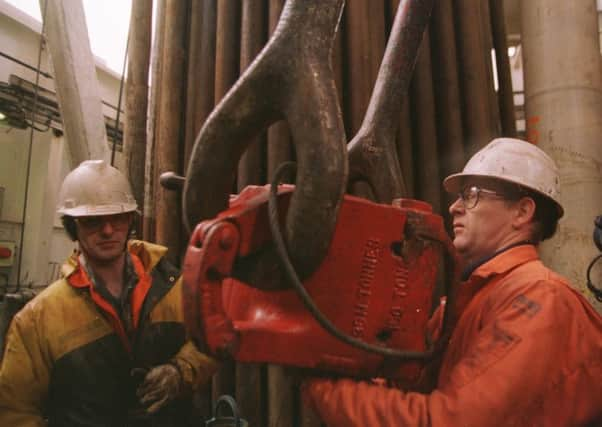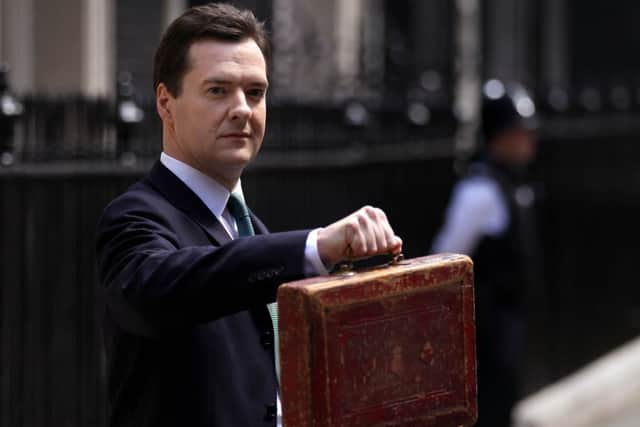North Sea oil and gas ‘facing triple threat’


David Glen, head of tax at PricewaterhouseCoopers (PwC) in Scotland, said there is a “real danger” plunging oil prices could result in investment becoming uneconomic, leading to diminishing field life and speeding up decommissioning.
The latest economic report from the University of Strathclyde’s Fraser of Allander Institute, sponsored by PwC, joins calls for the Chancellor to take action in the Budget later this month.
Advertisement
Hide AdAdvertisement
Hide AdThe industry has been hit by job losses with BP, ConocoPhillips, Talisman Sinopec, Shell, Chevron and Schlumberger all announcing cuts in recent months.


However, analysts point out that low oil prices, while bad news for the oil and gas sector, could in fact boost wider recovery in Scotland as consumers raise spending and investment picks up.
The institute said the effect of low oil prices on jobs across Scotland could range from a net 9,700 additional posts to a net loss of 600.
Mr Osborne has vowed to take further action to support the North Sea oil and gas industry in his statement to MPs on March 18.
Mr Glen said: “As a result of the volatile, low oil prices, we believe there is a real danger of an economic triple whammy across the oil and gas industry: reductions in income may result in incremental investment becoming uneconomic, potentially diminishing field life and accelerating decommissioning.
“With the 2015 UK Budget on the horizon, there is real scope for the Chancellor to reform what is currently a highly complex tax regime: protecting existing production; incentivising future exploration; safeguarding skills in the North Sea and across the UK supply chain; and preventing what could be an irreversible decline in the oil and gas industry.
“Other industries, such as automotive in the 80s and 90s, prove that there can be opportunities in adversity - but it needs more than innovation, collaboration and bold business strategies.
“Fiscal levers are also a vital part of the jigsaw and the oil and gas industry will be looking to the Government to deliver on 18 March.”
Advertisement
Hide AdAdvertisement
Hide AdThe Scottish economy is showing “healthy, sustained growth” driven by manufacturing and production, construction and business services, the report found.
The institute forecasts GDP growth of 2.8% in 2014, 2.6% in 2015 and 2.4% in 2016, an upward revision from its forecasts in November last year driven by a strengthening of the recovery in investment.
Brian Ashcroft, emeritus professor of economics at Strathclyde University, said: “The falling oil price and recovering investment could provide a welcome boost to the recovery just as there are signs of some slowing in the rate of growth in most major economies except the US, and as the troubles in the eurozone worsen with the increased risk of deflation and a distinct threat of Greece exiting the euro.
“The absence of good data and uncertainty about future oil prices allow only a crude estimate of the impact on the Scottish economy of the fall in oil prices.
“Nevertheless, we estimate that the impact on employment this year could range from 9,700 net additional jobs to a net job loss of 600 on best and worst case scenarios.”
Mr Glen added: “The Scottish economy continues to show healthy, sustained growth with sectors such as manufacturing and production, construction and business services helping drive this momentum.
“While the latest forecast should boost business confidence in the short to medium term, the challenge will be keeping this recovery on track.”
The institute said factors that could impact on recovery include unbalanced growth, further planned austerity and continuing problems in the eurozone.
FOLLOW US
SCOTSMAN TABLET AND MOBILE APPS